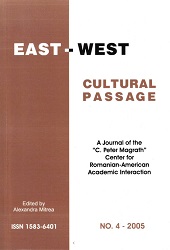Trans-Atlantic Pedagogical Dialogue – Philosophies of Education
Trans-Atlantic Pedagogical Dialogue – Philosophies of Education
Author(s): Corina-Mihaela BeleauaSubject(s): Philosophy, Social Sciences, Education, Educational Psychology
Published by: Editura Universitatii LUCIAN BLAGA din Sibiu
Keywords: philosophies of education; pedadogy; moral development; aesthetic freedom; self-discovery; play; global intelligence.
Summary/Abstract: Educational systems around the world are in a continuous reform. Even if there are local differences among them, it is undeniable that they share common values that lie at the foundation of the educational process of each individual. The present essay aims at portraying some of the prevailing values that pedagogues in America and Europe have been sharing for the last centuries, together with the ones needed nowadays. I will argue for a renewal in the conceptualization of the importance of literature, showing the urgency for adopting an educational system based on “cultivating humanity” through books and “global intelligence,” through openness toward others (Spăriosu 197). In the first part of the essay, I will present the philosophies of the main German educators of the 18th and 19th centuries, by focusing on the three main targets they consistently discuss: moral development, aesthetic freedom/ play (regarded as a deliberate activity) and self-discovery through reading. The second part of the essay will build a framework of some of the English and North American philosophies of education in the 19th century. I will emphasize the German legacy, together with new institutional ideals, such as the ideal of unity found in Newman’s, Ruskin’s, Arnold’s and Dewey’s reforms. Lastly, I intend to highlight the contemporary educational tendencies focusing on the return to the individualistic ideal, through play and self-discovery, through aestheticism and freethinking. These trends situate the student at the center of the pedagogical act, by directing him toward the truth translated in harmony, self-discovery and proper dialogue with the other. I will use a theoretical framework inspired by Martha Nussbaum and Mihai Spăriosu, in order to restate the need for educational reform and global education.
Journal: East-West Cultural Passage
- Issue Year: 17/2017
- Issue No: 1
- Page Range: 7-29
- Page Count: 23
- Language: English
- Content File-PDF

